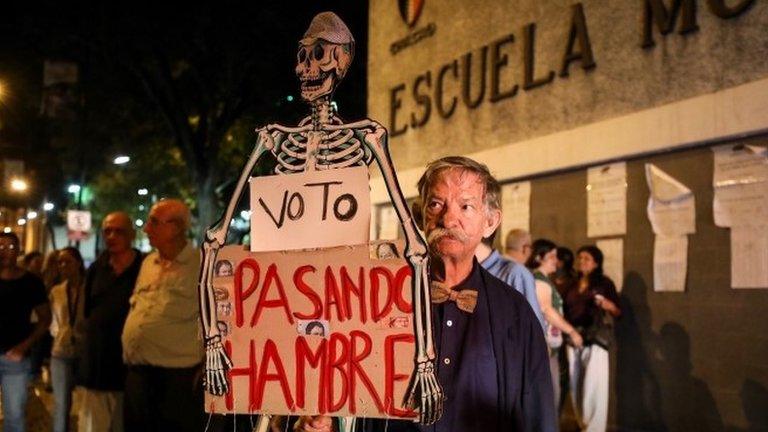Venezuela opposition wins EU's top human rights prize
- Published
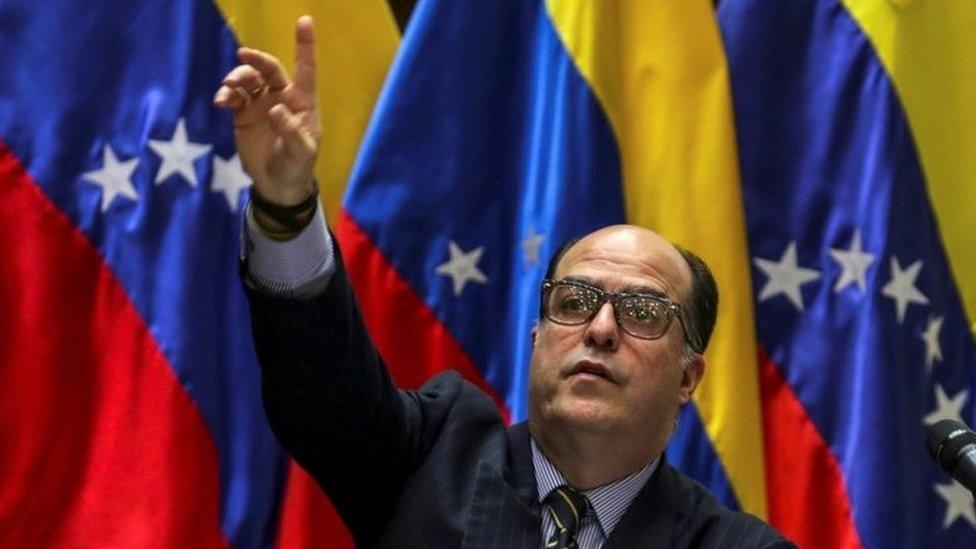
Julio Borges is the speaker of Venezuela's National Assembly, the winners of this year's award
The opposition in Venezuela and the country's political prisoners have won the European Union's top human rights award, the Sakharov prize.
The president of the European Union Parliament , Antonio Tajani, said many people in Venezuela had been deprived of their fundamental freedoms.
He called the president a "dictator" and said: "We cannot remain silent."
The freedom of thought prize is awarded annually in memory of Andrei Sakharov, a Soviet scientist and dissident.
Venezuela is mired in a deep political and economic crisis which has left the South American country deeply polarised between supporters of the socialist government headed by President Nicolas Maduro, and its opponents.
More than 120 people were killed in protest-related violence during a spate of anti-government demonstrations earlier this year.
Your video guide to the crisis gripping Venezuela
'Total support'
Announcing the recipients of the prize, Mr Tajani said that "we must defend democracy, freedom and human rights".
"And, for that reason, we have decided to award the Sakharov Prize for Freedom of Thought to the democratic opposition, recalling our total support for the National Assembly of Venezuela - a democratically-elected parliament - the only parliament democratically elected," Mr Tajani said.
Mr Tajani was referring to the current stand-off between Venezuela's National Assembly, dominated by opposition parties, and the constituent assembly, made up exclusively of government supporters.
The latter is a "superbody" and its powers trump those of the executive and legislative.
The constituent assembly has been controversial from the start with critics of Mr Maduro denouncing it as a way to bypass the opposition-dominated National Assembly.
While the Sakharov Prize praised the National Assembly for its "exceptional contribution to the fight for human rights", the prize is unlikely to change the government's attitude towards the opposition-controlled body.
The government routinely dismisses criticism by international bodies as "meddling" or lies.
In September, Venezuelan Foreign Minister Jorge Arreaza accused the Office of the UN High Commissioner for Human Rights of lying after the office published a report highlighting the excessive use of force by Venezuelan security forces at anti-government protests.
The Sakharov Prize also praised the role of political prisoners in Venezuela and those protesting for freedom.
The European Parliament said in a statement that it wanted to "express its proximity to and pay tribute to the Venezuelan people: to all those who have been unjustly jailed for expressing their opinion, to those struggling to survive on a daily basis because of a brutal regime, to those families in mourning because they have lost loved ones in months of uninterrupted protests for freedom."
The €50,000-prize ($58,000; £45,000) will be awarded on 13 December in Strasbourg.
Last year's prize was awarded to two Yazidi women who escaped sexual enslavement by so-called Islamic State (IS) in Iraq.
- Published25 October 2017

- Published27 October 2016
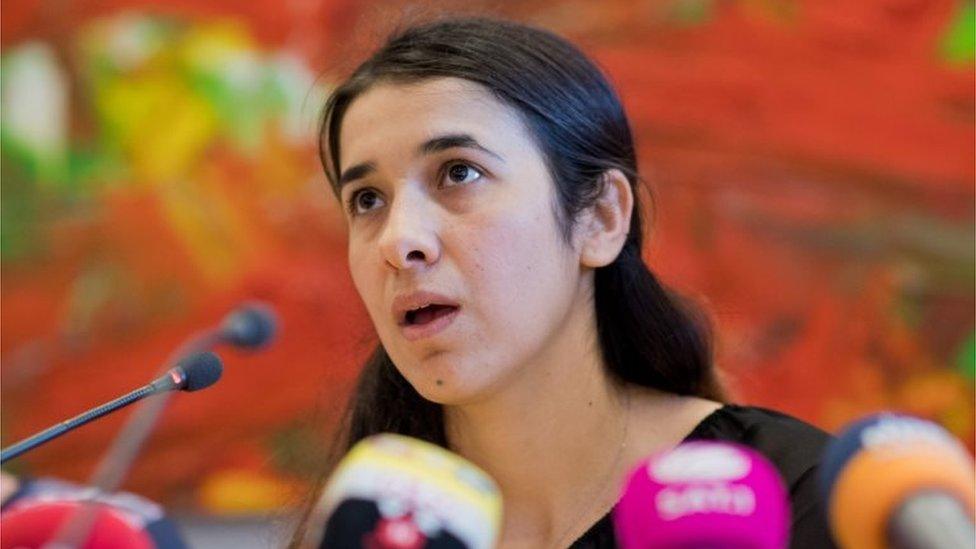
- Published28 September 2017
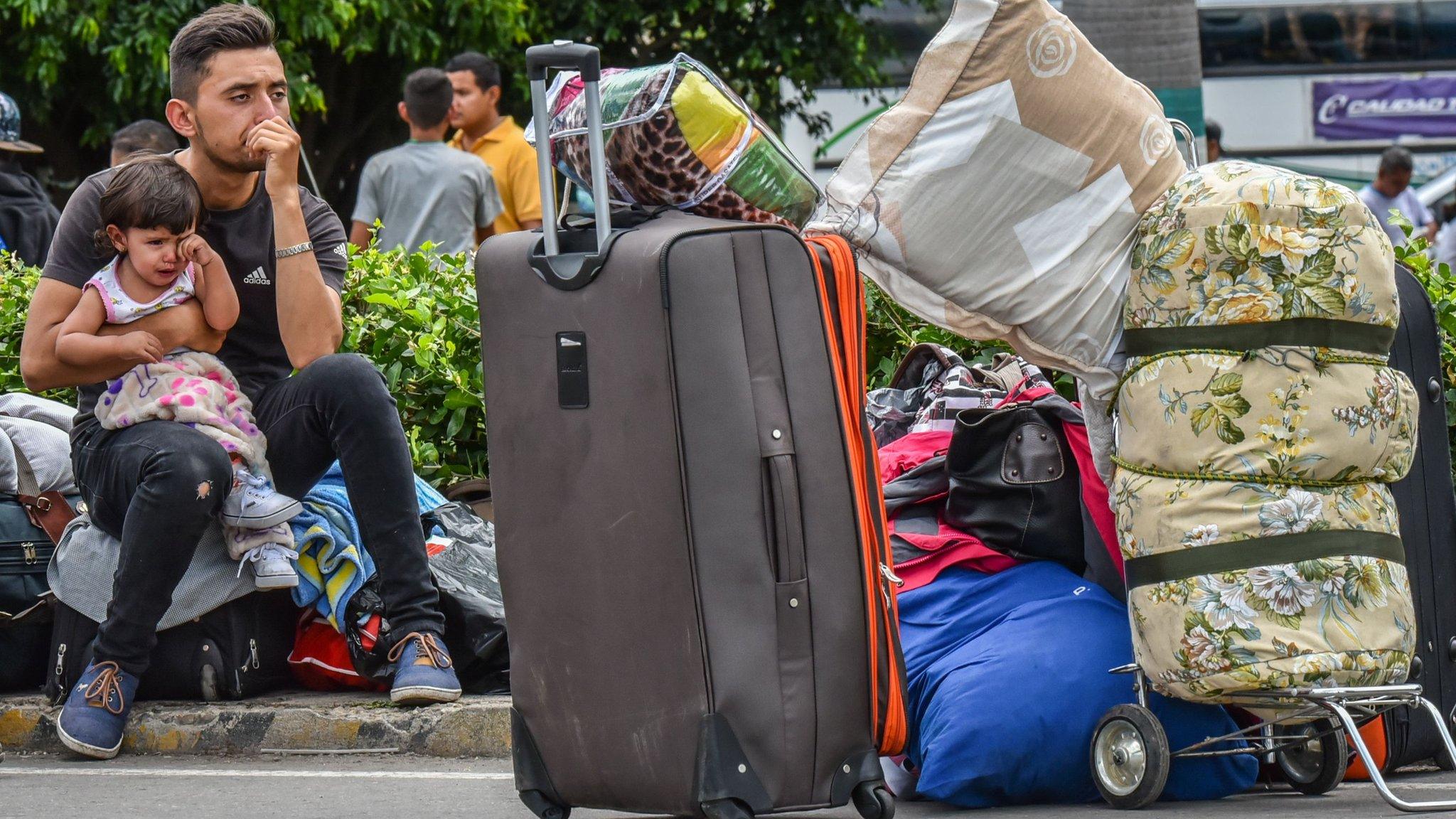
- Published13 October 2017

- Published21 October 2017
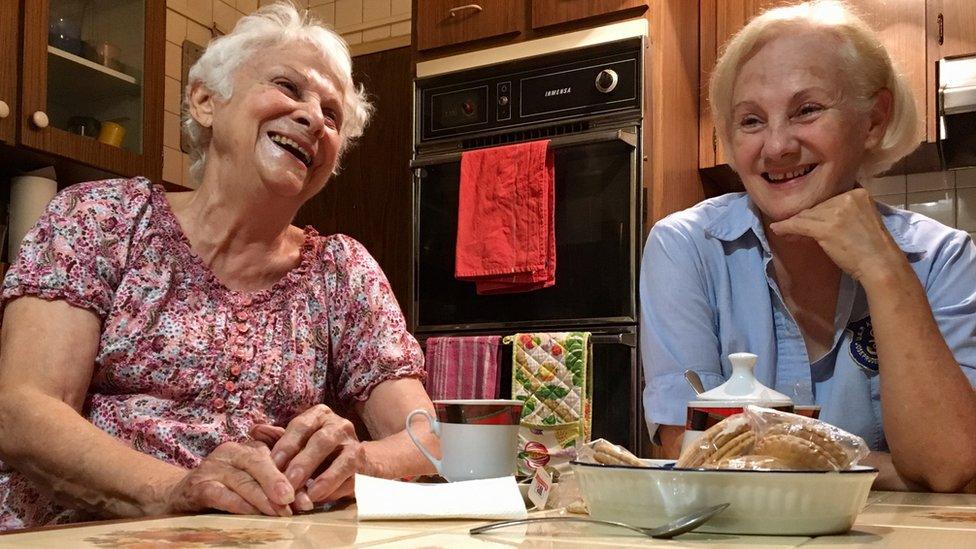
- Published17 October 2017
